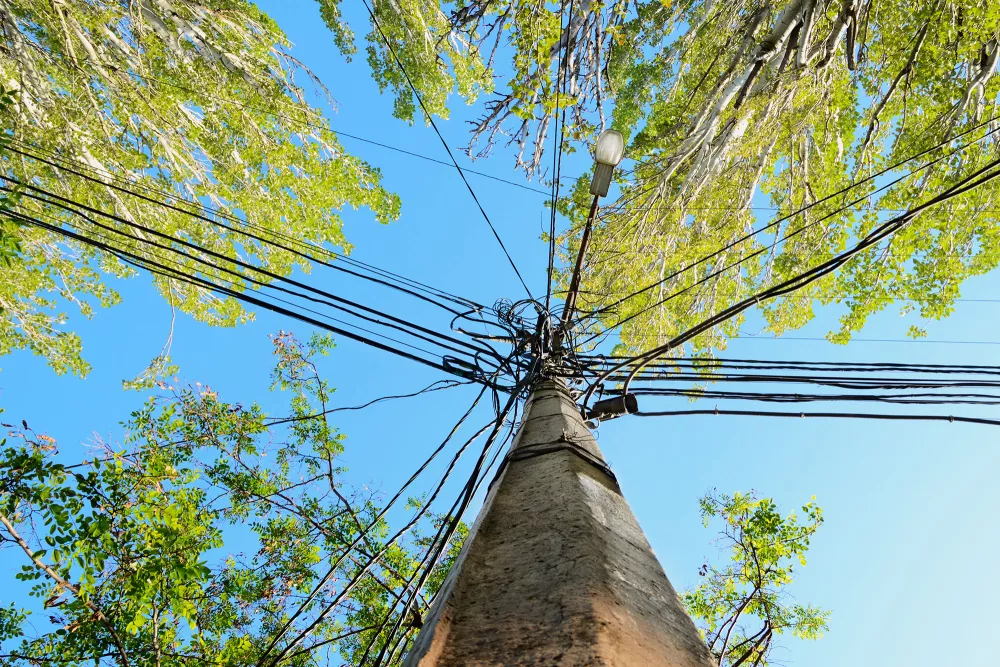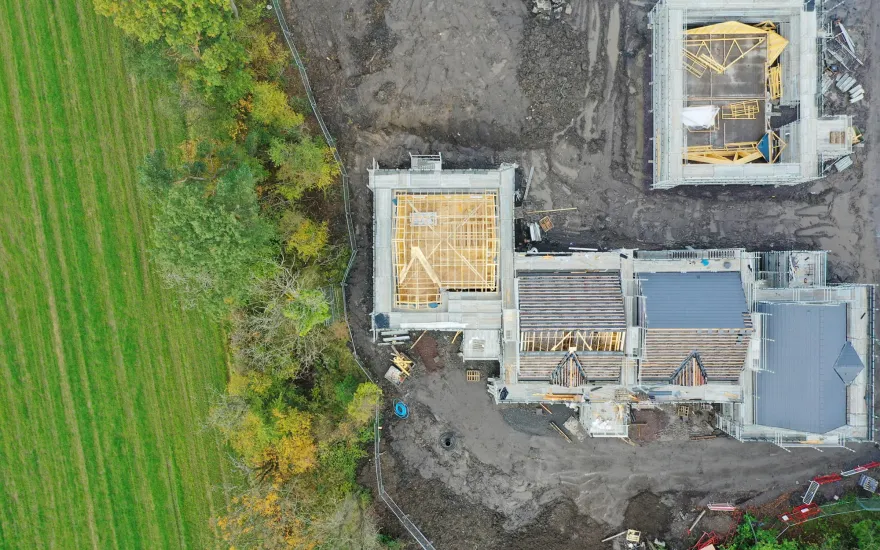Give before midnight on July 31 to double your impact where trees need us most. LEARN MORE
Bulletin
Tree Line USA
Trees in the forest face severe competition to survive, but it is nothing compared with what their city cousins must endure to share space with utilities. In the confined areas along streets and near buildings, limbs and wires compete in the air while roots, cables, and pipes vie for space in the soil below.

The dilemma is that both trees and utilities are essential to the high standard of living we expect in our communities.
The benefits of trees range from energy-saving shade to pure beauty that brightens our lives and adds value to our property. At the same time, our way of life depends heavily on the delivery of electricity, gas, telephone service, and cable TV — and we want it without interruption.
Utility company employees strive to meet the demands for good service. To do this, they find it necessary to keep overhead lines free from contact with limbs and out of danger from branches that fall during storms. As the companies respond to demands for buried utilities, they face yet another set of challenges in placing or repairing lines in the same soil where roots grow.
In some communities, the tree-utility dilemma has led to the deformation of trees by topping, mortality from severed roots, and the removal of large trees. In other areas, more enlightened companies have developed methods that allow trees and utilities to coexist — all to the benefit of a better community. In 1992, the Arbor Day Foundation created Tree Line USA to publicly recognize those companies or municipalities that provide utility service while at the same time protecting community trees. Just as importantly, the intent is to inform others about this better way of providing total service to their communities and to encourage them to do likewise.
In This Bulletin
Here’s what’s inside:
- Designing with Trees – the benefits of planning a parking lot that incorporates trees
- Remember the Roots – accounting for the health of the tree below ground
- Making a Good Design Better – small design adjustments that can have big impact
- More Design Tips – examples of integrating trees into different scenarios
- Chicago’s ‘Green Alleys’ – one city putting trees to work throughout its alleyways
